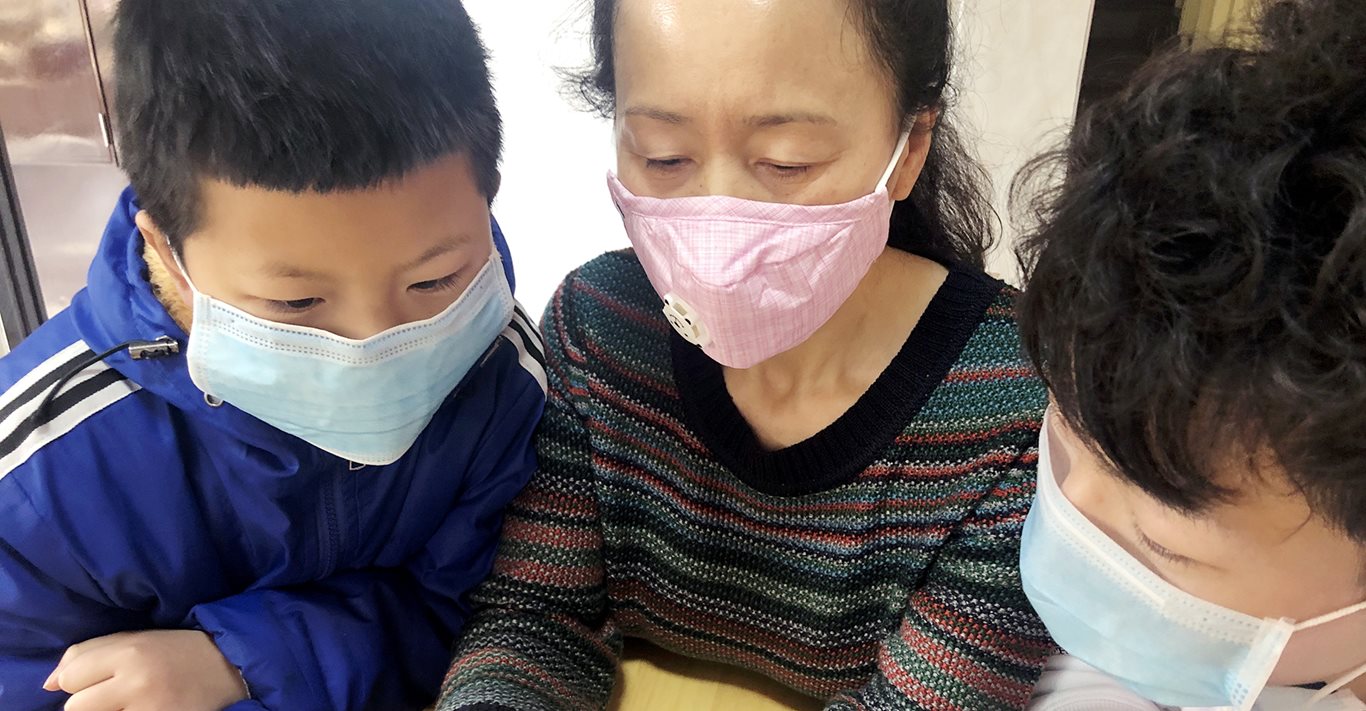It’s an incredibly difficult time for care-givers. In a situation of unprecedented chaos and turmoil, if you have children, you have to manage your own feelings of fear, anxiety and uncertainty while trying not to pass those stresses on to the children you are caring for.
A really challenging dimension of COVID-19 is that people have to be kept apart – even family members at times have been asked to avoid contact with one another. For the children in SOS’s care around the world, this can be incredibly difficult to explain. Some of them will have parents who they are unable to live with for the time being, but under normal circumstance they’d be encouraged to have regular contact with them to maintain those crucial bonds which are so important for well-being and development. But for now, they cannot keep up those important visits with their loved ones.
Something to remember in these difficult times is that children often accept things a lot more easily than adults, especially when we don’t try to hide the truth from them. In fact, the World Health Organisation suggests the following as a relatively straight-down-the-line approach of what to say to children:
“You have to stay at home/at the hospital because it is safer for you and your friends. I know it is hard, maybe scary or even boring, at times, but we need to follow the rules to keep ourselves and others safe. Things will go back to normal soon.”
One way of helping children to come to terms with what is happening is to get them involved in passing on the information. When the Coronavirus outbreak started in China, they asked the children to create awareness-raising materials, which ticked a lot of boxes for them. It meant they could see for themselves that the children understood the information they were sharing, and it provided a fun but educational activity for the children to take part in while schools were closed.
Similarly, to engage the children on the key issues, in Vietnam they came up with a dance which was a fun way for children to remember the most important information.
Above all, when you talk to children, don’t pretend to have all the answers. Nobody does at this stage – not even the world’s leading epidemiologists. Be available to the children you are caring for, and acknowledge how hard you are finding it too when so much is uncertain. Don’t promise anything and be open about what you don’t know or can’t answer. Being open about what a difficult time this is really can make all the difference, and could demonstrate to the children in your care that they are not alone – you’re still working all of this out together.
And make sure you are looking after your own worries and fears, because you can’t take care of anyone else if you don’t take care of yourself. This BBC article has some great suggestions to help you focus on yourself. Please share with anyone you think could use a reminder to look after themselves and put themselves first.

